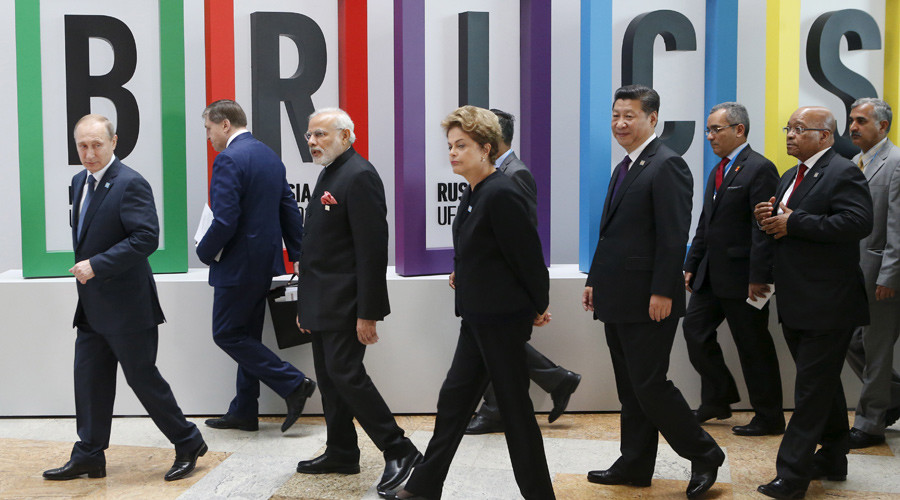The BRICS club of emerging powers has launched a new bank with headquarters in Shanghai. The New Development Bank has a startup capital of $50 billion – a figure that’s planned to double in the coming years. The cash will be used to help fund development projects, mainly in member countries.
RT: Why is there a need for such a bank?
Sreeram Chaulia: Absolutely. We needed something that would counter the hegemony of the Bretton Woods institutions that have been defining the global financial architecture for the last 60 years. I think it’s a huge new player and rightly it’s called the New Development Bank, as the BRICS Bank is formally called. I think we are going to evolve into quite a different beast from that of the World Bank to which it’s been compared. I think we are going to create new types of governing standards, to steer the world in a new direction as far as financing options are concerned. We are going to change the meaning of conditionality, which often accompanies World Bank and IMF assistance. I think we are also going to bring back people at the stage into this whole financial game because it has been completely dominated by financial oligarchs. In a way we are going to bring back something which has been unheard of but which had existed in the pre-finance capital era. We are going to bring back banking that is for the people and for developing countries.
RT: Should the US-based World Bank and the IMF be worried about this potential rival?
SC: The leadership of the BRICS Bank or the New Development Bank have been saying that it will complement and supplement the existing financial institutions, but the Indian president of the Bank, Kundapur Vaman Kamath said “We are going to make our contribution in our own way,” and I think as the institution gets up and starts lending and giving out for projects we are going to see a difference. Because otherwise if it simply going to be another Asian Development Bank institution, which has been dominated by the Japanese and indirectly by the Americans, I don’t think we are going to make any headway because we have been disappointed in the developing world with the Bretton Woods institutions. So we are talking about a post-Washington consensus here and for that to be created the BRICS Bank has to be in the bandwagon.
RT: The economy of the biggest contributor, China, has been going through difficulties; the same can be said about Russia. Is this the right time to launch such a bank?
SC: I think so, fifty billion equally contributed by all the five BRICS member countries and we are looking to top it up with another fifty billion where we will issue bonds. The bank is going to issue bonds for private sector investors from BRICS countries, and I think there is plenty of capital in the private sector in many of these countries and also potentially elsewhere. There is also a hotline between the BRICS Bank and the Asian Infrastructure Investment Bank that the Chinese have set up with India, Russia and other members. So therefore this innovation is going to be complemented with these two banks, and I would be interested in seeing how these two evolve to reshape the global financial order rather than talking about how we will be supplementary or secondary to the World Bank and the IMF.
